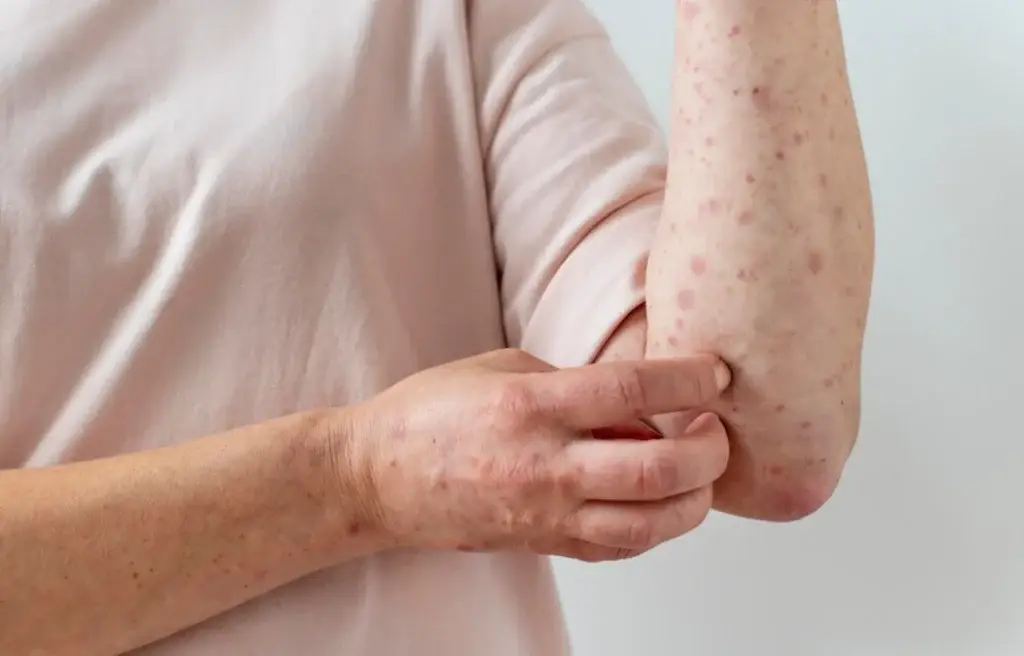Now Reading: Measles Outbreaks Surge: Why Vitamin A Isn’t the Answer
- 01
Measles Outbreaks Surge: Why Vitamin A Isn’t the Answer

Measles Outbreaks Surge: Why Vitamin A Isn’t the Answer
As measles outbreaks continue to spread across parts of the United States, particularly in Texas and New Mexico, concerned parents and individuals are searching for ways to protect themselves and their families. Among the circulating information, claims about Vitamin A as a preventive measure against measles have gained attention.
But medical experts are clear: while Vitamin A plays an important role in managing measles complications, it cannot prevent infection. This misconception could lead to dangerous health decisions during a critical public health situation. In this article, we’ll explore what Vitamin A actually does, how it relates to measles treatment, and what proven prevention methods you should rely on instead.
Recent Measles Outbreaks: Texas and New Mexico at the Center
Health officials in Texas and New Mexico have reported alarming increases in measles cases since early 2025. In Texas, public health departments have confirmed over 45 cases across multiple counties, with particularly concerning clusters in urban school districts. Similarly, New Mexico has reported more than 30 cases, representing the state’s largest outbreak in decades.
Dr. Maria Sanchez, epidemiologist at the Texas Department of Health Services, explains: “What we’re seeing is largely concentrated among unvaccinated individuals. The highly contagious nature of measles means that a single case can potentially expose dozens or even hundreds of others in public settings.”
Both states have implemented emergency response protocols, including temporary exclusion of unvaccinated students from affected schools and public vaccination campaigns. However, misinformation about alternative prevention methods continues to complicate these efforts.
Understanding Vitamin A: What It Actually Does in the Body
Vitamin A isn’t just another supplement on the health store shelf—it’s a critical nutrient that performs numerous essential functions in the human body:
Vision Support: Vitamin A is perhaps best known for its role in maintaining healthy vision. It forms a critical component of rhodopsin, a protein in the eyes that helps you see in low light conditions. This is why severe Vitamin A deficiency can lead to night blindness and other vision problems.
Immune System Function: Vitamin A helps maintain the integrity of the mucosal barriers in your respiratory and digestive tracts—your body’s first line of defense against pathogens. It also supports the production and function of white blood cells, which fight off infections.
Cell Growth and Differentiation: This vitamin plays a crucial role in the normal formation and maintenance of heart, lungs, kidneys, and other vital organs. It’s particularly important for healthy skin and mucous membranes.
Reproductive Health: Vitamin A is essential for reproductive function and normal embryonic development during pregnancy.
Dr. James Liu, nutritional immunologist at Columbia University, notes: “Vitamin A is fundamentally important for a properly functioning immune system, but having adequate levels doesn’t create immunity to specific diseases like measles. That’s not how the nutrient works in our bodies.”
The Vitamin A and Measles Connection: Treatment, Not Prevention
The relationship between Vitamin A and measles has been studied extensively, and here’s what the research actually shows:
Treatment for Complications: The World Health Organization recommends high-dose Vitamin A supplementation for children diagnosed with measles, particularly in areas where Vitamin A deficiency is common or where measles case fatality rates are high. This recommendation is based on evidence showing that Vitamin A can reduce the severity of measles and prevent complications like blindness.
Reducing Mortality: Studies have demonstrated that Vitamin A supplementation can reduce measles-related mortality in children by up to 50%. This is significant in developing regions where nutritional deficiencies compound the risks of infectious diseases.
Support During Recovery: Vitamin A helps repair damaged epithelial tissues in the respiratory and gastrointestinal tracts that occur during measles infection, potentially speeding recovery.
Dr. Elena Washington, pediatric infectious disease specialist at the Mayo Clinic, explains the confusion: “I think the misunderstanding stems from conflating treatment with prevention. Vitamin A is indeed valuable once someone has measles—especially for preventing complications—but it absolutely cannot prevent the initial infection. Only vaccination can do that.”
Why Vitamin A Cannot Prevent Measles Infection
Understanding why Vitamin A fails as a preventive measure requires some basic knowledge about how measles infection works:
Viral Mechanics: Measles is caused by a highly contagious virus that spreads through airborne transmission. When you breathe in viral particles, they initially infect cells lining your respiratory tract before spreading throughout your body.
Targeted Immunity: Prevention requires specific antibodies that recognize and neutralize the measles virus before it can establish infection. Vitamin A doesn’t generate these antibodies or create a barrier that prevents viral entry.
Immunological Response: While Vitamin A supports overall immune function, it doesn’t create the specific memory cells needed to rapidly respond to measles exposure. Only vaccination or previous infection provides this targeted protection.
“Thinking Vitamin A can prevent measles is like thinking general fitness can prevent a specific sports injury,” says immunologist Dr. Rebecca Johnson. “Good overall health is beneficial, but it doesn’t address the specific mechanism of protection needed.”
The Dangers of Relying on Vitamin A for Prevention
The misconception about Vitamin A as prevention comes with real risks:
Delayed Vaccination: Some parents may delay or avoid measles vaccination for their children if they believe Vitamin A provides protection.
False Sense of Security: Those supplementing with Vitamin A might engage in riskier behaviors, thinking they’re protected from infection during outbreaks.
Toxic Levels: Excessive Vitamin A supplementation can actually be harmful, potentially causing nausea, headaches, fatigue, and in severe cases, liver damage and birth defects.
Dr. Carlos Mendez, public health officer in New Mexico, shares a concerning trend: “We’ve encountered families who declined vaccination because they believed they were protected through nutritional means. Unfortunately, several of these children later contracted measles during the current outbreak.”
Proven Measles Prevention Methods
Health experts unanimously recommend these evidence-based approaches for measles prevention:
MMR Vaccination: The measles, mumps, and rubella vaccine provides 97% effectiveness against measles after two doses. It’s the single most effective prevention method available.
Herd Immunity: Communities with vaccination rates above 95% provide protection even for those who cannot be vaccinated due to age or medical conditions.
Isolation Protocols: During outbreaks, limiting exposure by keeping infected individuals isolated helps reduce transmission.
Proper Hygiene: While less effective for airborne viruses like measles, hand washing and respiratory hygiene can provide some additional protection.
Ensuring Adequate Vitamin A Through Diet
While Vitamin A isn’t a measles preventative, maintaining healthy levels through diet remains important for overall immune function. Good dietary sources include:
Animal Sources (Preformed Vitamin A):
- Liver and fish oils
- Egg yolks
- Butter and full-fat dairy products
Plant Sources (Beta-carotene that converts to Vitamin A):
- Orange and yellow vegetables like carrots, sweet potatoes, and pumpkin
- Leafy greens like spinach and kale
- Orange fruits like mangoes, cantaloupe, and apricots
Most healthy individuals can meet their Vitamin A requirements through a balanced diet without supplementation. However, those with specific health conditions should consult healthcare providers about their individual needs.
Conclusion
As measles outbreaks continue to affect communities in Texas, New Mexico, and potentially other regions, it’s crucial to rely on scientifically proven prevention methods. While Vitamin A plays an important role in overall health and can help reduce complications for those already infected with measles, it simply cannot prevent infection.
The most effective protection against measles remains vaccination, which has safely reduced measles cases worldwide by over 80% since 2000. If you’re concerned about measles exposure, particularly in outbreak areas, contact your healthcare provider about vaccination status and follow local public health guidelines.
By understanding the true relationship between Vitamin A and measles, we can make informed health decisions that genuinely protect ourselves and our communities during this concerning public health situation.
Disclaimer:This article contains general information for educational purposes only and is not a substitute for professional medical advice. Always consult with a qualified healthcare provider regarding any medical conditions or health concerns, particularly during disease outbreaks. Vaccination decisions should be made in consultation with healthcare professionals familiar with your specific medical history.











